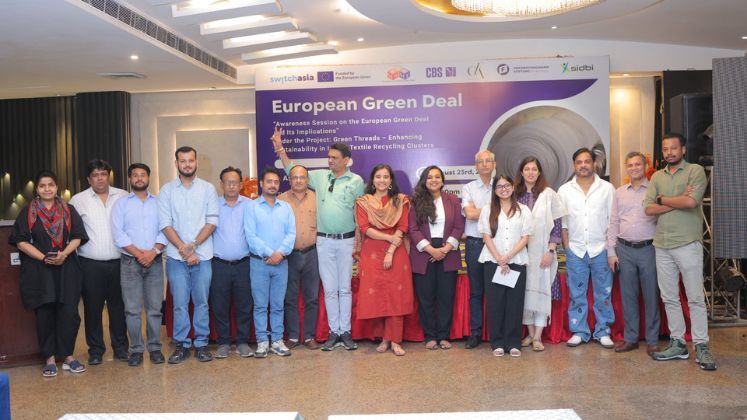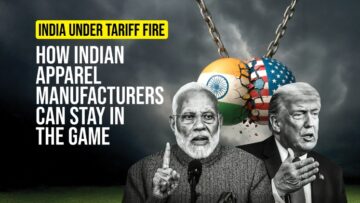
The Foundation for MSME Clusters (FMC), in partnership with the Panipat Exporters Association, organized a workshop under the European Union–funded Green Threads programme (part of the SWITCH-Asia initiative) in Panipat. The session focused on preparing exporters for the EU’s evolving sustainability framework for textiles and apparel, with emphasis on compliance, traceability, and environmental accountability.
Mukesh Gulati, Executive Director of FMC, highlighted the urgency for Panipat’s exporters to align with global sustainability benchmarks, stressing that the city has the potential to establish itself as a hub for circular textiles.
The European Union has rolled out stricter requirements aimed at curbing overproduction, enforcing traceability, and ensuring that garments entering its markets meet standards of durability, recyclability, and environmental responsibility. For Panipat—already a leading center for recycling India’s textile waste—these rules represent both compliance challenges and an opportunity to modernize operations.
The workshop brought together international experts in textile sustainability. Harshita from Global Fashion Agenda (GFA) outlined the EU’s textile strategy, including upcoming mandates on eco-design and the Digital Product Passport (DPP). Ina Bahungna of Reverse Resources presented traceability models to support Extended Producer Responsibility (EPR). Chinky Yadav from Green Story explained how DPPs can capture a garment’s full environmental footprint, from water usage to repair and recycling, enabling businesses to make informed choices.
The event was attended by senior representatives of trade and industry associations, including Lalit Goyal (Panipat Exporters Association), Vinod Dhamija (Haryana Chamber of Commerce and Industry), Rajat Grover and Puran Rawal (Young Entrepreneurs Society), Parvinder Singh (Global Alliance for Textile Sustainability), and Nitin Arora (Dyer Association).






